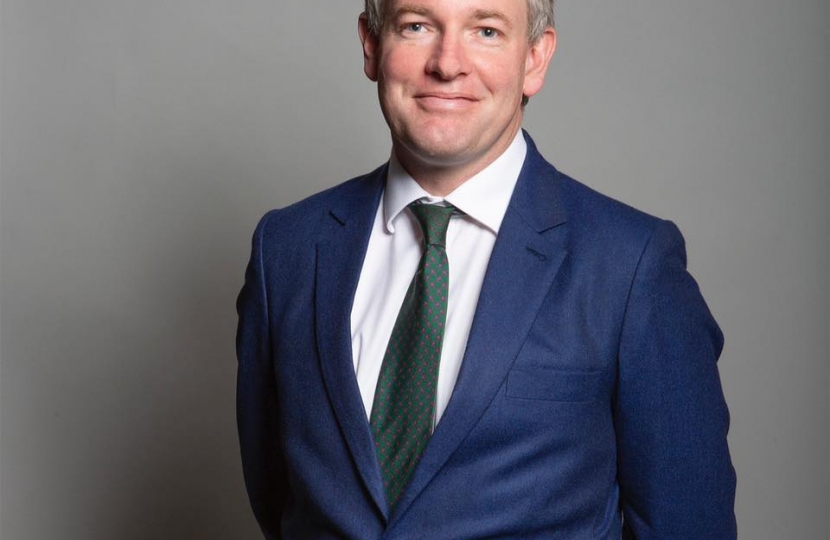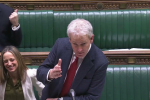
On Monday I was on a virtual panel with the thinktank Policy Exchange, alongside the DUP leader Arlene Foster and the former MP Kirstene Hair, who is now chief adviser to the Scottish Tory leader Douglas Ross.
Around the same time the Prime Minister was on a call with a group of Northern Tory MPs where he is reported to have said (when will my colleagues realise that leaking the contents of private meetings isn’t a fit and proper thing to do?) that devolution had been ‘a disaster’. It is unlikely that he opposes devolution itself, since he spent eight years running a devolved administration in London. But he is right that the effect of devolution has been disastrous for Scotland, for it has delivered an SNP government there for the past thirteen years, with worse education, health and economic outcomes than the rest of the UK.
I mention this because although the Union can feel quite abstract from Wiltshire, the heart and indeed the birthplace of England, as we leave the EU we must decide how to hold the UK itself together. Many of the same arguments for Brexit are of course used by the separatists in Scotland: the need for local not remote power, the need to take back control, the strength of national feeling. It is of course ironic that the SNP wish Scotland to rejoin the EU, an ambition which negates all the arguments for independence from the UK. But Brexiteer Unionists must explain why we believe in one secession but not the other: why Brexit but not Scexit?
My answer is that the UK is a successful political alliance and the EU is not. One is genuinely a Union, with genuine common interests and a common demos (a people who see themselves as members of a single political body). The other is (as Guy Verhofstadt, the leading MEP, told the Liberal Conference last year), an empire, akin to its Austro-Hungarian ancestor: a coalition of unwilling nations held together only by an intermingled, transnational elite.
The EU is, in my view, inherently unstable and unworkable in its current, imperial form. A looser alliance without a central power might yet emerge and I’d be glad for the UK to join such a group. While we are not part of the European demos (there isn’t one) we are part of European civilisation and we face a range of common threats. Meanwhile, I am glad that the end of the tortuous Brexit process approaches, and that we seem on the brink of securing the UK-EU trade deal that many commentators said was impossible. We now need to make the case for the Union with Scotland.
The big announcement of the week was the financial commitment to the Armed Forces. I am delighted that the Defence Secretary has managed to wangle £24 billion out of the Treasury, the biggest cash boost for the defence of the realm in a generation. I appreciate that the nation’s finances are incredibly tight. But the world has surely never been more unstable, with such a multiplicity of threats. Some of these - the so-called ‘sub-threshold’ threats of non-violent economic disruption and political interference, and the potential power of AI-enabled weapons and other forms of digital warfare - are far beyond the capabilities of conventional forces.
But as senior soldiers are always at pains to stress, in the last instance defence is about having soldiers who can kill other soldiers, and vehicles from which this killing can be done. The conventional army - and navy and air force - are the ultimate guarantor of our defence. That’s why, in the Commons before the spending announcement, I had a quick word with the Defence Secretary Ben Wallace. I said, 'Great about the money. Will any of it go on actual troops?' He said of course it would - but we need better tech to protect them. There's no point having troops and tanks without defences against enemy drones that can spot and take them out. He made the same point in a very informative interview with the Telegraph which helps explain the strategy.
Annoyingly I wasn’t called to speak in the Defence debate, or I would have expatiated on the contribution of the soldiers based in Wiltshire to the Covid-19 response, which demonstrates once again the crucial role our Army plays in maintaining the resilience of the UK; and repeated my call (see here) for a Parliamentary Parade to thank them for their work.
I did make a couple of Parliamentary interventions this week. In a debate on the Towns Fund I spoke up for parishes and smaller communities, not just the bigger towns which are receiving more money from Government.
I had some fun at the expense of Jacob Rees-Mogg, or rather his county of Somerset, the cheese capital of the South West, which I compared unfavourably to Wiltshire, the wonder of the ancient world. Both counties benefit hugely from tourism and I hope we will get good news in next week’s Spending Review of a commitment to fund new Tourism Zones - of which the Great West Way from London to Bristol would be a prime candidate.
Finally, I made a speech in a debate in Westminster Hall (the Commons’ second chamber) on the future of work. This vital question - what will employment look like in an age of automation - offers two possible answers: greater inequality, unemployment and despair, or a better, more united, greener society. My speech is here, and here is a short summary on Twitter.
I don’t usually detail my media appearances in these newsletters but these two may be of interest. BBC Politics North made a lovely short film based on my report for the Prime Minister, Levelling Up Our Communities, which argues for more local power and independent social action. And I was a guest on Chopper’s Politics, the podcast by the Telegraph’s chief political correspondent Christopher Hope, in which I spoke about my report, and also about No 10 and Boris.
In his reply to my gentle mockery of Somerset, Jacob Rees-Mogg kindly extolled the heroes of Wiltshire who fought with Alfred the Great at the Battle of Edington (near Westbury) in 878. In seeing off what was known as the ‘Great Heathen Army’ of the Danes, Alfred consolidated the Kingdom of Wessex out of which, in time, England arose. As ever, nations are forged from conflict with foreigners. I hope the end of our long and unhappy dispute with the EU, now just weeks away, will help Wiltshire, England and indeed the United Kingdom consolidate, settle, and prosper.





